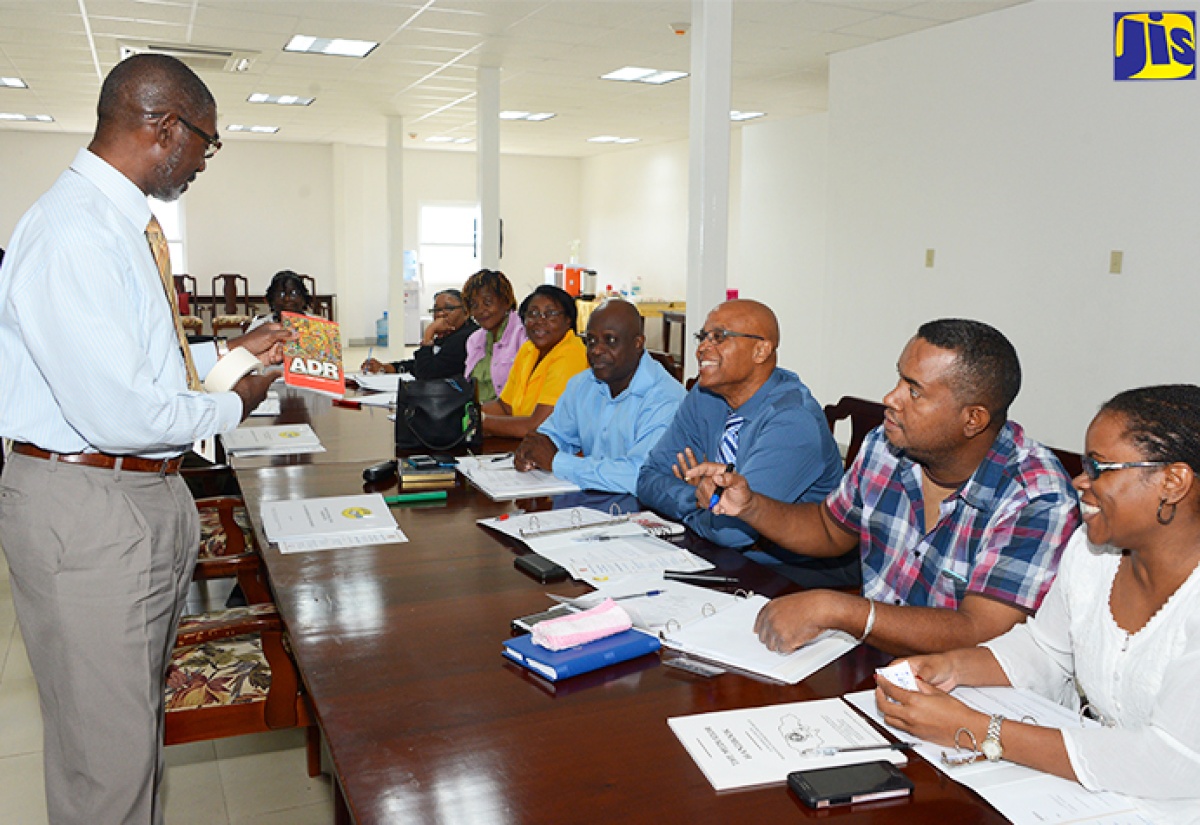500 JPs to Receive Training in Mediation Techniques
By: , February 14, 2017The Key Point:
The Facts
- The first of several mediation training sessions was held on February 13 at the Ministry of Justice in Kingston.
- In her address at the opening ceremony, Permanent Secretary in the Ministry, Carol Palmer, said the initiative is a significant feature of the Ministry’s Justice Reform agenda, adding that the Ministry aims to reduce the backlog of case files in the system by 20 per cent over the April 2017-18 period. This rate will be increased gradually.
The Full Story
The Ministry of Justice is training some 500 Justices of the Peace (JPs) in mediation techniques to reduce the backlog of cases in the courts and improve peace building at the community level.
The first of several mediation training sessions was held on February 13 at the Ministry of Justice in Kingston.
In the first instance, 50 JPs will be trained during the month of February with more training sessions to be conducted throughout the year. The second session for the month will be held on February 17.
Among the topics covered are: conflict resolution; settling domestic disputes; and dealing with criminal offences.
At the end of the training, the JPs will be assessed to determine competency for certification. Thereafter, a list of JPs will be sent to the Chief Justice for gazetting as certified mediators. They will form part of the roster of court-appointed mediators to be selected to mediate in the parish courts.
In her address at the opening ceremony, Permanent Secretary in the Ministry, Carol Palmer, said the initiative is a significant feature of the Ministry’s Justice Reform agenda, adding that the Ministry aims to reduce the backlog of case files in the system by 20 per cent over the April 2017-18 period. This rate will be increased gradually.
Mrs. Palmer pointed out that more practitioners and reformers of justice systems are advocating the use of non-court processes to resolve conflicts where possible.
“The alternatives to court-based solutions have the advantages of restoring relationships or bringing them to an end with dignity. This saves time, money and are less stressful,” she said.
Currently, 30 per cent of matters are now being disposed of through mediation at the Supreme Court level.
Mrs. Palmer said there is room to significantly increase that figure as well as consolidating and expanding the process in the parish court as part of the Ministry’s emphasis for this year.
Noting that the training will enable the JPs to take on an even greater role in quasi-judicial processes, the Permanent Secretary said the exercise aims to ensure there are enough JPs trained to support the establishment of a “multi-door” justice system with JPs playing a more active role in addressing matters in the Civil Justice System.
Meanwhile, Director General, Justice Training Institute, Ministry of Justice, Karen Campbell-Bascoe, pointed out that the training will empower JPs to administer various forms of Dispute
Resolution at the community level, particularly in cases of domestic violence.
“We also have an issue of domestic violence within our communities and we want to treat with that by recommending alternate resolution mechanisms, so persons will be able to sit and talk through their issues and resolve them amicably, instead of resorting to crime and violence,” Mrs. Campbell-Bascoe said.
The training sessions are being facilitated by the Dispute Resolution Foundation (DRF), a private voluntary organisation which encourages the use of Alternative Dispute Resolution (ADR) techniques through the use of restorative justice practices to promote peace and resolve conflicts without the use of violence.


